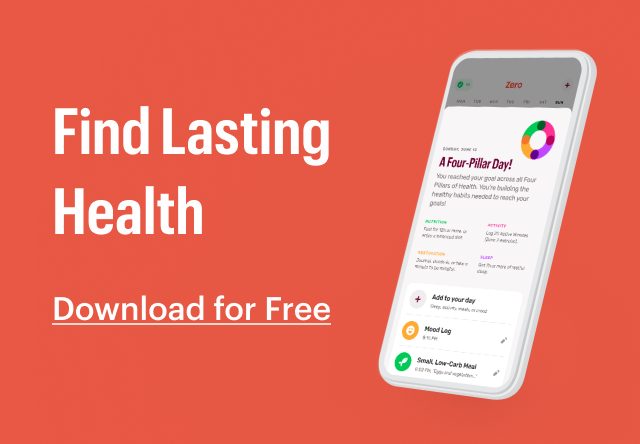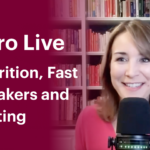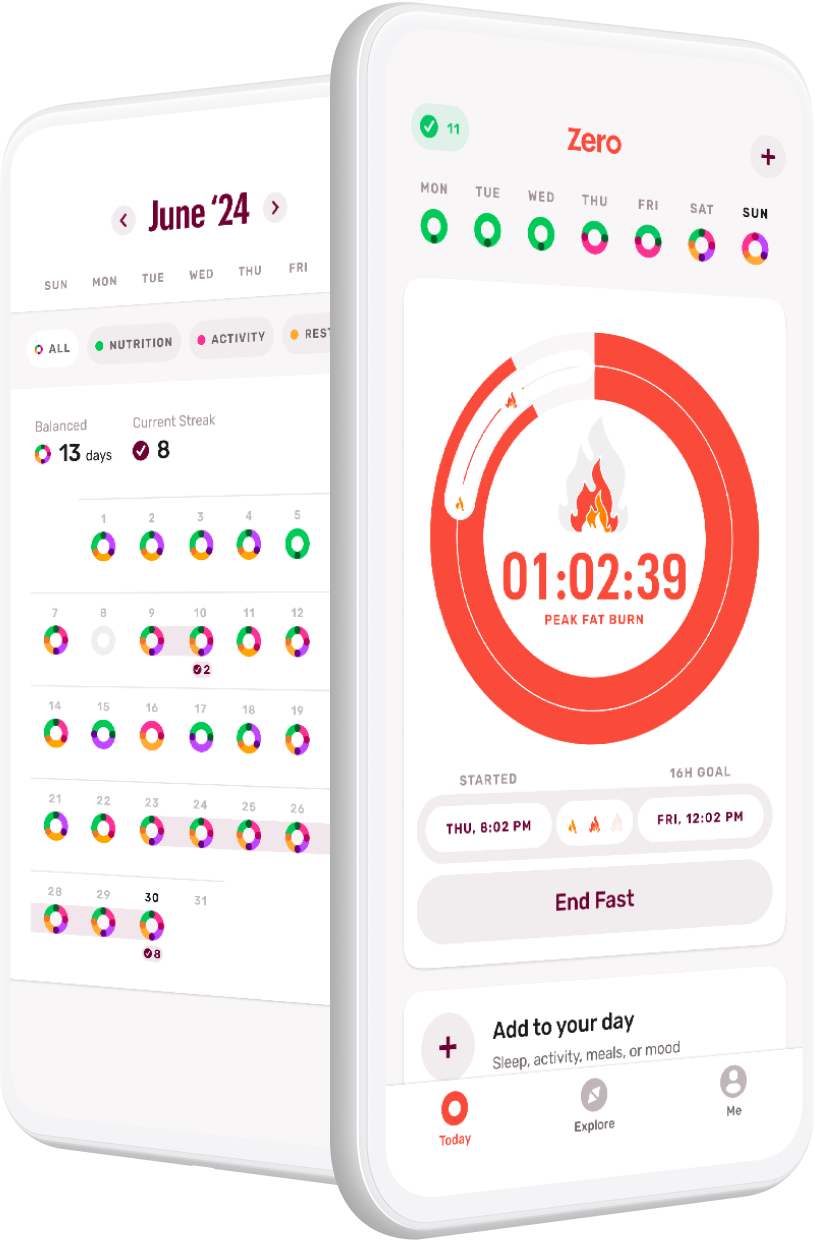Written and medically reviewed by Rich LaFountain, PhD
as interviewed by Rich LaFountain, PhD
Dr. Cienfuegos wants you to know that intermittent fasting is simple. And if you’re a woman struggling with healthy hormone regulation or PCOS, it may be a powerful tool for you.
Sofia Cienfuegos, PhD, RD, is an accomplished researcher and dietitian. Dr. Cienfuegos is actively publishing research as she makes discoveries that help people use intermittent fasting to improve their health and reduce disease. In the following conversation, we speak with her about discovering intermittent fasting, her contributions to the fasting research landscape, and what’s in store for the future.

Q&A with Sofia Cienfuegos: Intermittent Fasting for Cardiometabolic Health and Longevity
Q: Please tell us your story of how you found intermittent fasting and what propelled you to focus on this area of research and clinical practice.
A: I am originally from Chile, South America. When I was in Chile working as a dietitian, I realized that I love helping people and working with patients to improve their lives with nutrition. Nutrition is a relatively new field of human science, and I developed an intense interest in exploring areas of nutrition that are less well studied.
About 8 years ago, I came to the States to focus on nutrition research and finish my master’s degree. I worked in a great lab during that time, and my love for research grew. Clinical nutrition research in humans blended my passion for working with people, my dietetic experience, and my desire for advanced learning. My early research experience influenced my decision to continue on working toward a PhD, and I was fortunate to join Krista Varady’s lab, which has become one of the most productive fasting labs in the United States.
The first intermittent-fasting research study I led focused on shorter eating windows. Initially, I was concerned that study participants would struggle with a 4- to 6-hour eating window. As it turned out, I ended up being incredibly surprised by the results, specifically when I saw how much people enjoyed doing 18:6 or 20:4 intermittent-fasting protocols. This sparked my interest, and I have been researching intermittent fasting in humans ever since.
Q: What are some of the most consistent benefits you see across your many intermittent-fasting research trials?
A: The first benefit of intermittent fasting I see consistently is that it’s an intervention people can actually stick to for weight loss. Although I enjoy the twists and turns and new revelations as nutrition science advances, most people just want to know what to do and they feel unsure since nutrition is always changing. I find most people are frustrated by all of the “right” and “wrong” answers that conflict with each other. Fasting is wonderful in that it cuts through the complexity and through its simplicity offers great results.
People consistently lose weight with intermittent fasting even if they are not specifically being told to cut calories. The weight-loss benefits of intermittent fasting are remarkable because they are not coupled with the same challenges that always make calorie counting so difficult. In that initial study where the eating window was limited to 4 or 6 hours, the participants spontaneously reduced energy intake by 550 calories daily. In other studies where the eating window is between 8 and 10 hours, daily energy intake is unintentionally reduced by 20–30%, roughly 300–400 calories. The advantages of a lifestyle and eating pattern that result in an unintentional reduction in energy intake are hard to ignore, especially against a backdrop of overweight and obesity that affects seven out of ten adults.
I also have found that glucose and insulin are improved in many intermittent-fasting studies. Across the studies I have been a part of, we’ve found that intermittent fasting can improve signs and symptoms associated with type-2 diabetes, non-alcoholic fatty-liver disease, and polycystic ovarian syndrome (PCOS). Insulin resistance and hyperinsulinemia are linked with so many diseases, so it’s really exciting to study intermittent fasting because there are so many people that can be helped.
Q: What are you currently working on? Are there any studies in the pipeline for you right now?
A: Right now, I am running a study on the effects of intermittent fasting in PCOS patients. PCOS is a complex disease, but it is linked with body weight, insulin resistance, and hormone levels for a majority of patients. Lifestyle, nutrition, and fasting are effective tools for managing PCOS stemming from insulin resistance. We are hoping that intermittent fasting will help our patients in ways that other dietary strategies, like calorie restriction, are unfit to do, especially given the insulin-sensitivity benefits that intermittent fasting produces.
Looking back upon my dietetic experience, I engaged with many females who struggled with their reproductive health. Now, given my experience and research focus, women reach out to me to ask for advice and share their stories about how intermittent fasting helped them. Most find that lifestyle changes and intermittent fasting can have a huge impact on reproductive-health issues, including PCOS and fertility challenges.
The guidelines for treating PCOS include diet and exercise first, but the complexity of and low adherence to the traditional coaching of eating less and moving more mean that clinicians may decide to skip lifestyle changes and move right to medical interventions. I believe that my current and future research will help bring intermittent fasting into focus as an effective yet simple tool to help patients without calorie counting, food-label obsession, or meal tracking.
Wrap-Up: Intermittent Fasting Is Simple and Sustainable
As Dr. Cienfuegos has shared, intermittent fasting is a powerful tool for building and sustaining health. For more great science and education related to intermittent fasting and nutrition, check out Dr. Cienfuegos’s impressive publications and follow her on Instagram.
- Debunking 3 Myths Around Fasting and Thyroid Health - April 15, 2024
- Breaking Down Fast Breakers: How to Tell If Something Will Break Your Fast - March 4, 2024
- GLP-1s and Weight-Loss Medications vs. Lifestyle Interventions: What’s Right for You - February 5, 2024






